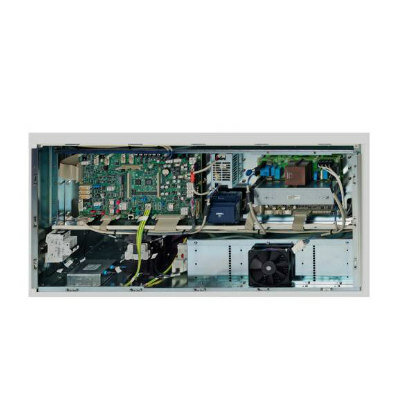Siemens and SurgiVision to Develop MRI-Guided Cardiac Electrophysiology System
By MedImaging International staff writers
Posted on 24 Sep 2009
Siemens Healthcare (Erlangen, Germany) and SurgiVision (Irvine, CA, USA) have announced an agreement for the codevelopment and commercialization of a real-time magnetic resonance image (MRI)-guided cardiac electrophysiology (EP) system for diagnosing and treating atrial fibrillation (AF). Posted on 24 Sep 2009
The two companies are collaborating with the University of Utah (Salt lake City, USA) to develop a fully integrated, groundbreaking EP MRI system that promises to improve conventional catheter-based cardiac procedures. In May 2009, the university opened an integrated EP-MRI clinical and research lab, which provides real-time delayed enhancement MRI for treating AF patients. The MRI's three-dimensional (3D) imaging provides greater resolution of the heart tissue than the two-dimensional images typically used, giving physicians a more precise and powerful tool for diagnosis and treatment.
"Siemens' scanner technologies, platform for interactive real-time guidance, and market leadership in MRI are second to none. By bringing together Siemens' capabilities with SurgiVision's technologies and expertise in real-time MRI-guided interventions, we are well-positioned to deliver a fully integrated hardware, software, and catheter system that will provide real-time visualization within an intuitive physician interface and a procedure that eliminates radiation exposure," said Kimble Jenkins, CEO of SurgiVision. "Our close research collaboration with the University of Utah rounds out our team with deep clinical expertise and broad research capabilities."
"We are excited to work with SurgiVision in the development of these important technologies that have the potential to significantly improve therapies for patients suffering from cardiac arrhythmias, in particular atrial fibrillation," added Walter Märzendorfer, CEO of the MR division at Siemens Healthcare.
"We are refining image-based cardiac ablation procedures using MRI, which our research indicates has the potential to improve the accuracy of the ablation, prevent complications, and decrease the number of repeat procedures," said Nassir Marrouche, M.D., an electrophysiologist and director of the University of Utah's atrial fibrillation program.
Related Links:
Siemens Healthcare
SurgiVision
University of Utah














